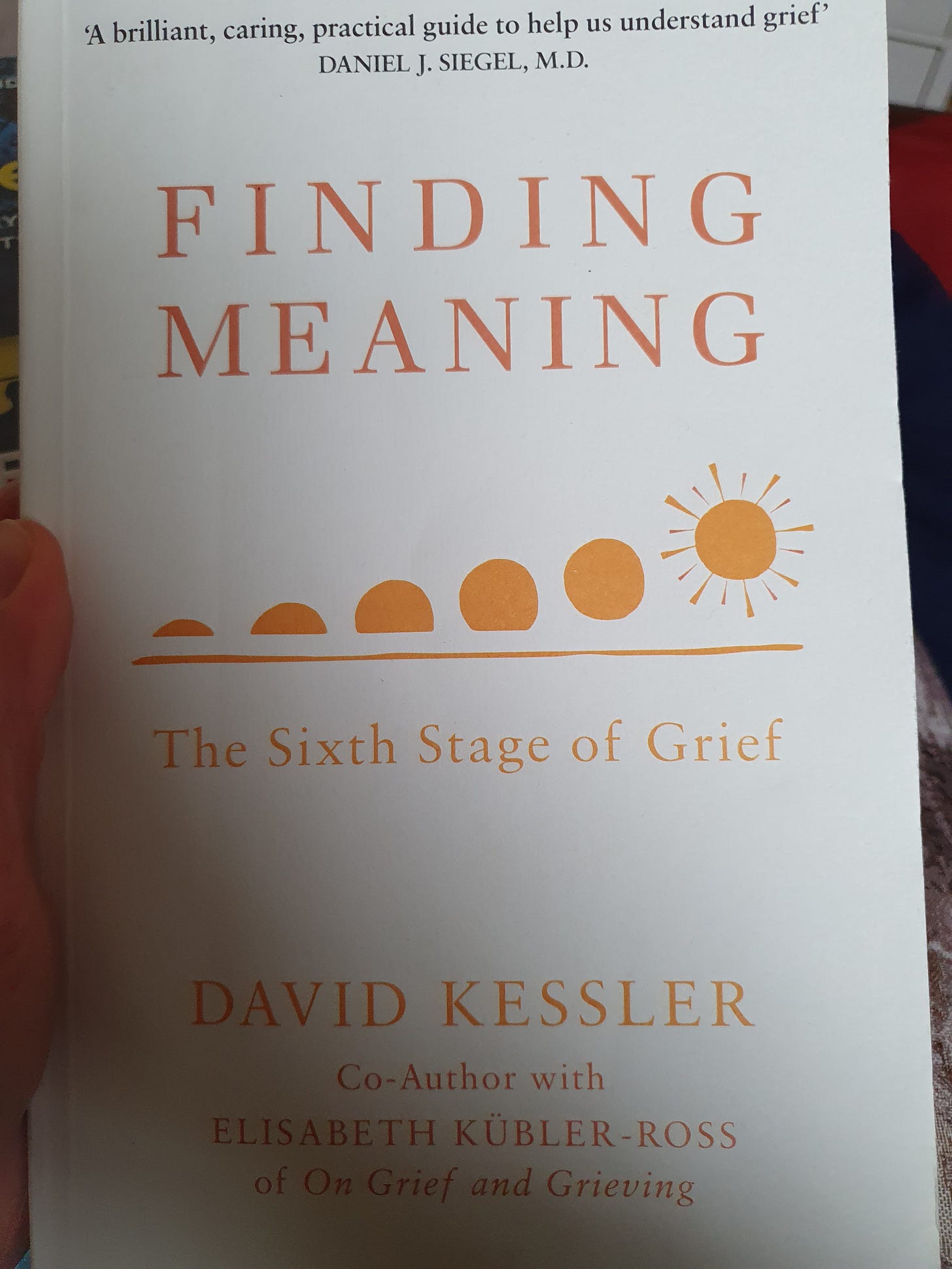Anyone who has ever experienced grief has probably heard of the five stages of grief originally defined by Elisabeth Kübler-Ross and discussed with David Kessler: Denial, Anger, Bargaining, Depression, Acceptance.
As someone who has been grieving for 25 years (my mother died when I was 11) I don’t have a lot of patience for the five stages of grief because it makes it sound so industrial and contained whereas my experience of grief has been anything but. The only other grief book I have read is from Hope Edelman and was very specific about mother loss. She is sceptical of the five stages of grief hypothesis.
You can imagine my reluctance to read a book titled ‘The Sixth Stage of Grief’. However, I needed to read something grief related to deal with my renewed grief for my father that has recently resurfaced (he died 8 years ago). I am so glad I did. Kessler clarifies that the five stages of grief have been mistakenly interpreted as a grief map instead of different emotional reactions that occur during grieving in random order and at different times of one’s life. He acknowledges that grief doesn’t stop after you have experienced all five stages of grief. You might revisit them again at different times. I felt reassured and ready to learn about the sixth stage of grief.
David Kessler truly understands grief. He is a fellow motherless child who lost his mum at a young age and has since experienced many other deaths of loved ones, most recently his own son’s.
"[…] grief should be a no-judgement zone. Those who understand what you're going through will never judge you or think your grief is out of proportion or too prolonged. " p. 31
He acknowledges the suffering grieving people are going through and challenges us to be optimistic nonetheless.
“Pain is inevitable, but suffering is optional. […]
The pain is part of the love. Suffering is the noise or mind makes around that loss, the false stories it tells because it can't conceive of death as random. Death can't just happen. There must be a reason, a fault. The mind looks for where to lay the blame […]" p. 51
It’s difficult for me to accept this role of randomness, to accept that my parents died too young was just a random happening rather than an event with some deeper meaning or caused by something predictable or bigger than us.
Kessler encourages us to find meaning despite our profound loss.
"There is nothing half full about your loved one dying. I'm asking you to be optimistic about your future, to hope that you can still create a life worth living. " p. 96
"The why you must answer is not why your loved one died, but why you lived. Why are you here? What meaning can you bring to the rest of your life? What meaning can you find in those who are living? […]
It is in our control to find meaning every day. You can still love, laugh, grow, pray, smile, cry, live, give, be grateful, be present. You can take the other moments as they come. That can be meaning. […]
The life that was lost was precious. If we have been granted more time, shouldn't we believe that our life is also precious?" p. 110/111
"We often believe that grief will grow smaller in time. It doesn't. We must grow bigger. We must be the architects of our lives after loss. " p. 252
In the book, Kessler gives many examples from his personal experience with death and grief as well as from his professional life where he has met many grieving people from all walks of life. Some examples are heartbreaking and tragic and I am astonished how the human spirit rises above these experiences and people manage to go on and live a meaningful life.
The book validates the pain of losing a loved one while staying upbeat and optimistic that life can and should go not by ignoring the pain and grief but by integrating it into our lives in a meaningful way.

